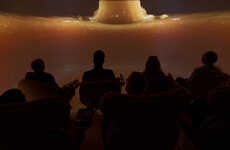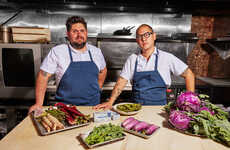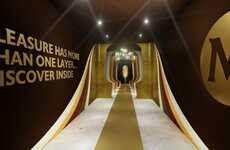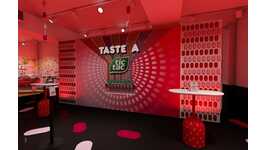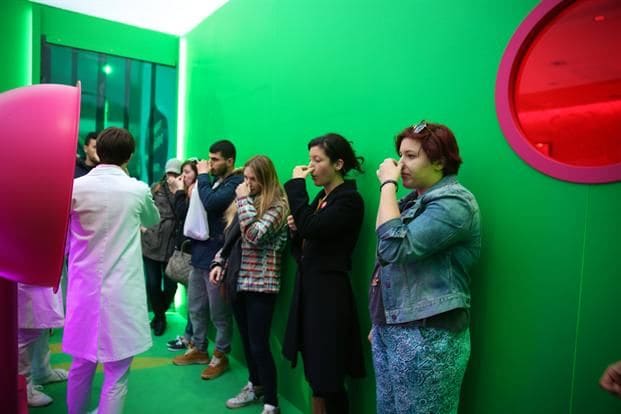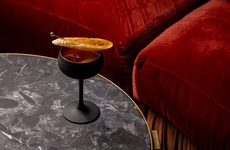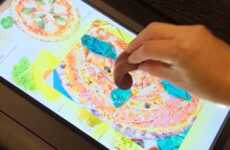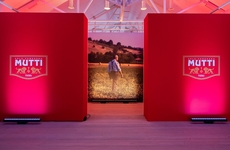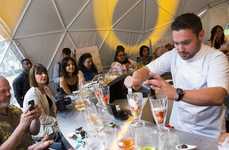
Westfield's Tongue Twister Shows How Sight, Smell & Sound Influence Taste
Laura McQuarrie — March 5, 2015 — Lifestyle
References: uk.westfield & eventmagazine
In order to show that taste involves more than one of the senses, the Westfield Stratford City and Shepherds Bush shopping centers in London played host to Tongue Twister. The vibrant multi-sensory event was set up like Willy Wonka's factory, full of vibrant colors, as well as curious items to eat and explore.
Different rooms at Tongue Twister held different experiences. For instance, Pure was the first space introduced, helping to cleanse the palate and prepare for the sensory overload ahead. Beyond this, other spaces contained ultraviolet herb gardens, rooms loaded with live instruments and interiors filled with scents to influence the taste of food items. Beyond these stations, themed events were held at the mall's restaurants, serving as a way to heighten the dining experience. This is particularly helpful for Westfield, since 10% of Westfield's sales come from food retailers.
Different rooms at Tongue Twister held different experiences. For instance, Pure was the first space introduced, helping to cleanse the palate and prepare for the sensory overload ahead. Beyond this, other spaces contained ultraviolet herb gardens, rooms loaded with live instruments and interiors filled with scents to influence the taste of food items. Beyond these stations, themed events were held at the mall's restaurants, serving as a way to heighten the dining experience. This is particularly helpful for Westfield, since 10% of Westfield's sales come from food retailers.
Trend Themes
1. Multi-sensory Experiences - Creating multi-sensory experiences to enhance enjoyment and engagement in various industries such as retail, entertainment, and hospitality.
2. Sensory-centric Marketing - Using sensory input (sight, smell, sound, taste, and touch) as the basis for developing innovative marketing campaigns to promote products and services in various industries.
3. Personalized Dining Experiences - Developing dining experiences that cater to individual preferences and tastes through customized food options, sensory environments, and interactive technology, in industries such as food and hospitality.
Industry Implications
1. Retail - Designing immersive retail experiences that engage customers' senses, creating personalized and memorable shopping experiences.
2. Entertainment - Incorporating sensory-centric experiences into various forms of entertainment, such as theater, music, and theme parks.
3. Hospitality - Utilizing sensory experiences to enhance guest comfort and enjoyment in hotels, resorts, and other hospitality settings.
4.1
Score
Popularity
Activity
Freshness

